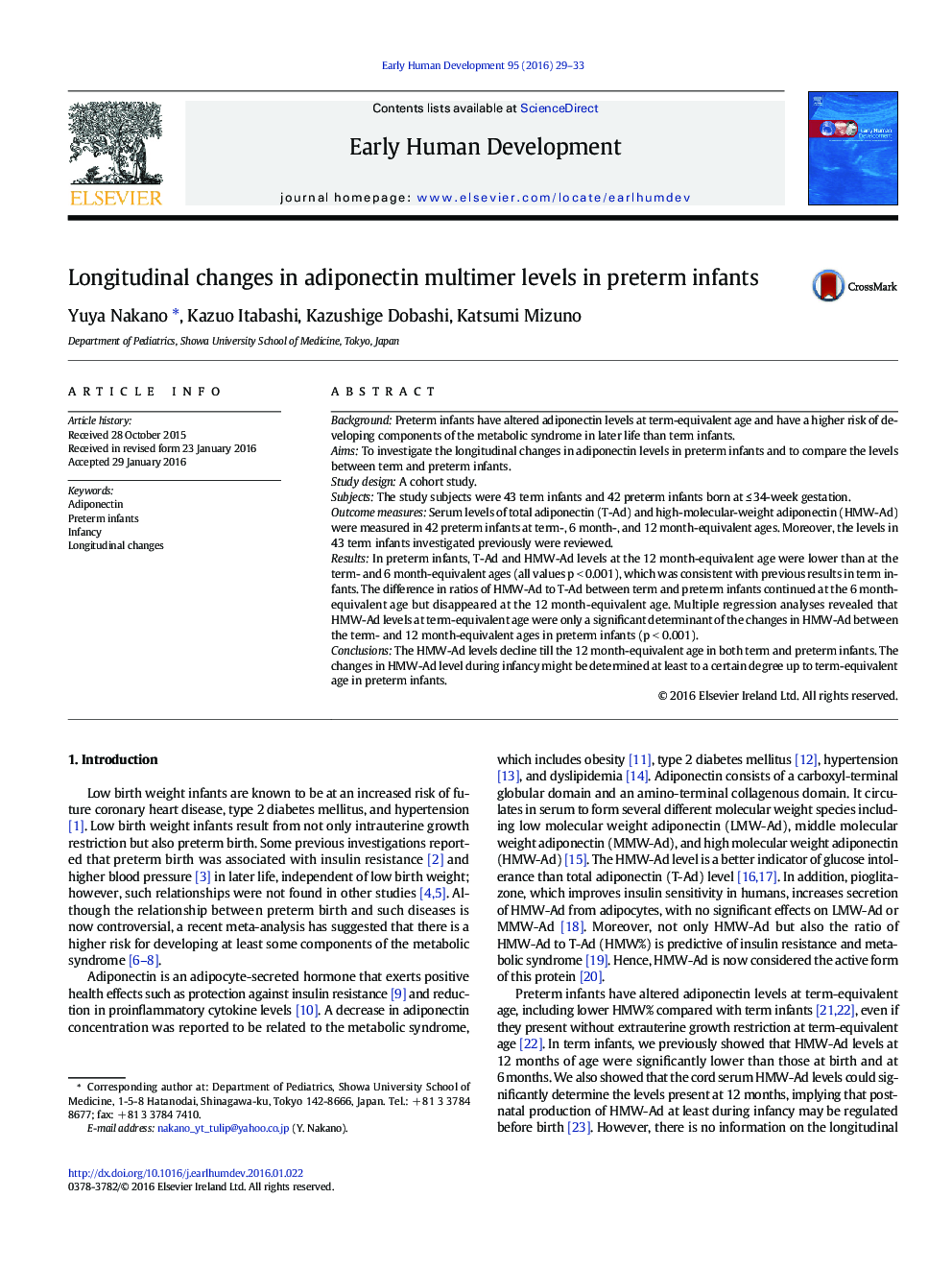| Article ID | Journal | Published Year | Pages | File Type |
|---|---|---|---|---|
| 3917680 | Early Human Development | 2016 | 5 Pages |
BackgroundPreterm infants have altered adiponectin levels at term-equivalent age and have a higher risk of developing components of the metabolic syndrome in later life than term infants.AimsTo investigate the longitudinal changes in adiponectin levels in preterm infants and to compare the levels between term and preterm infants.Study designA cohort study.SubjectsThe study subjects were 43 term infants and 42 preterm infants born at ≤ 34-week gestation.Outcome measuresSerum levels of total adiponectin (T-Ad) and high-molecular-weight adiponectin (HMW-Ad) were measured in 42 preterm infants at term-, 6 month-, and 12 month-equivalent ages. Moreover, the levels in 43 term infants investigated previously were reviewed.ResultsIn preterm infants, T-Ad and HMW-Ad levels at the 12 month-equivalent age were lower than at the term- and 6 month-equivalent ages (all values p < 0.001), which was consistent with previous results in term infants. The difference in ratios of HMW-Ad to T-Ad between term and preterm infants continued at the 6 month-equivalent age but disappeared at the 12 month-equivalent age. Multiple regression analyses revealed that HMW-Ad levels at term-equivalent age were only a significant determinant of the changes in HMW-Ad between the term- and 12 month-equivalent ages in preterm infants (p < 0.001).ConclusionsThe HMW-Ad levels decline till the 12 month-equivalent age in both term and preterm infants. The changes in HMW-Ad level during infancy might be determined at least to a certain degree up to term-equivalent age in preterm infants.
